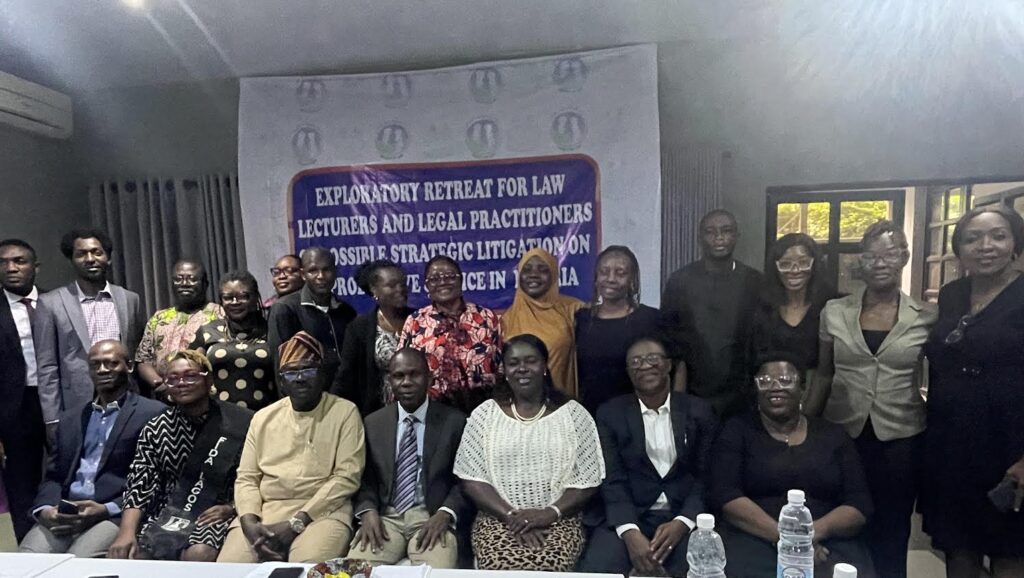
To satisfy our basic requirements as humans, housing is essential. Housing plays a crucial role in ensuring that households have a secure and safe place to live.
Additionally, it presents potential for improving social capital outcomes, such as health and well-being. The significance of housing and the entitlement to adequate housing is enshrined in the United Nations 1948 Universal Declaration of Human Rights.
According to the United Nations, adequate housing should include more than just four walls and a roof. Several prerequisites must be fulfilled for specific types of shelter to be deemed as “adequate housing.” These aspects are equally vital to the basic supply and availability of housing. For housing to be considered adequate, it must meet the following characteristics, at minimum:
• Security of tenure: Housing is not adequate if its occupants do not have a degree of tenure security which guarantees legal protection against forced evictions, harassment, and other threats.
• Availability of services, materials, facilities and infrastructure: Housing is not adequate if its occupants do not have safe drinking water, adequate sanitation and energy for cooking, heating, lighting, food storage or refuse disposal.
• Affordability: Housing is not adequate if its cost threatens or compromises the occupants’ enjoyment of other human rights.
• Habitability: Housing is not adequate if it does not guarantee physical safety or provide adequate space, as well as protection against the cold, damp, heat, rain, wind, other threats to health and structural hazards.
• Accessibility: Housing is not adequate if the specific needs of disadvantaged and marginalised groups are not taken into account.
• Location: Housing is not adequate if it is cut off from employment opportunities, health-care services, schools, childcare centres and other social facilities, or if located in polluted or dangerous areas.
• Cultural adequacy: Housing is not adequate if it does not respect and take into account the expression of cultural identity.

The housing shortfall in Nigeria is rapidly escalating, with low-income earners being the most susceptible group. Housing is a crucial aspect of individuals’ lives, their communities and their social and economic welfare. Policies can have a significant impact on ensuring that housing is secure, reasonably priced and easily accessible. Affordable housing involves several key components: effective management, well-planned land policies, targeted investment strategies and proactive efforts to promote environmentally sustainable and affordable housing options and communities.
The administration of former president Mohammed Buhari (2015-2023) attempted to effectively tackle housing shortages through initiatives such as the National Housing Programme (NHP), Family Home Fund Limited (FHF) and National Housing Fund (NHF). Regrettably, these programmes could not alleviate housing deficits due to their underperformance. The low-income earners in both the private and public sectors are burdened with the exorbitant prices of a limited number of residences, making them unaffordable. The policy continues to be ineffective despite significant financial commitment, as seen by the large proportion of low-income earners who are still experiencing housing poverty.
Despite significant financial commitments, the projects have not been successful, as evidenced by the large portion of the population who are low-income earners and continue to experience housing hardship. As a matter of fact, most private and public housing schemes across the nation are far beyond the reach of the poor and low-income earners.
The problem of housing poverty among those who are financially disadvantaged and have low incomes requires a methodical approach to ensure that vulnerable individuals with pressing housing needs are not completely ignored. Houses are indeed being constructed throughout Nigeria, primarily in urban areas, particularly by the private sector. Nevertheless, developers are primarily motivated by financial gains and anticipate substantial returns on their investments, making the price of houses unpredictable. This approach is not viable or feasible for the advancement and provision of affordable housing for individuals with low incomes. Ensuring the sustainable development of housing and realising the right to appropriate housing, particularly among low-income groups, requires a long-term strategic effort. This effort involves well-informed policy creation, effective implementation and regular evaluation and adaptation over time.
Affordable housing development and provisions in Nigeria requires robust housing policies, in-depth housing research, policymakers’ understanding of social and cultural housing context and involvement of housing experts to name a few.
Placing affordable home ownership at the centre of the housing agenda by the current administration will help low/middle income earners to have access to affordable housing. The policy will accelerate the SDGs: Sustainable Cities and Communities-Goal 11 of the Geneva UN Charter on Sustainable Housing and also the implementation of the Housing Partnership Action Plan towards the provision of decent, adequate, affordable and healthy housing for all by year 2030.
Policymakers have a responsibility to shape more resilient housing systems and ensure that standard homes are constructed not only in the urban centres, but also in the rural areas, which must be affordable, safe and accessible, thereby implementing the Sustainable Development Goals (SDGs) by 2030; meeting the Paris Agreement goals on climate change, and realising the right to adequate housing.
Building on the successful governance model of President Ahmed Bola Tinubu’s Renewed Hope Agenda, it is essential to establish a regulatory framework to guide private sector affordable housing providers. Operating licences for organised operators such as housing associations and private sector organisations should be introduced, similar to other regulated industries in Nigeria. Presently, there is no database available for affordable housing providers. Despite the belief of many developers that they are offering affordable homes, regrettably, the costs are unaffordable for salaried low-income individuals with meagre and inconsistent monthly income.
For instance, it would be an extremely challenging endeavour for an individual earning a monthly income of N30,000.00 to be able to purchase a house that is labelled as “affordable” but costs N60,000,000, considering other household expenses. Seemingly, the majority of developers are advocating for affordable housing in workshops and at seminars, yet the dwellings being offered are not affordable for the low income group.
If operators are licenced, it would facilitate monitoring of their performance, enable the provision of subsidies and alleviate challenges in accessing facilities for affordable home construction and delivery. It will aid in stabilising property prices and eliminating cowboy builders and unlicensed practitioners. This strategy will promote the accessibility of homes for individuals with low incomes, as well as improve the quality and efficiency of development projects targeted towards this population. The existing features of the neo-classical economic framework approach are inadequate for properly delivering affordable housing. The competitive and regulatory environment has prevented individuals with low income in both rural and urban areas from achieving home ownership.
Delivering affordable housing usually entails the use of various policy tools that function together, necessitating effective multi-level governance (MLG) and cooperation arrangements. MLG pertains to the effective distribution of responsibilities among various levels of government (vertical coordination) or different agencies and departments (horizontal coordination). These structures may encompass both private and public actors, including organisations engaged in housing delivery processes, programmes and policies. Utilising MLG procedures and tools can enhance policymakers’ ability to efficiently coordinate affordable housing policies. These procedures can be codified in laws, implemented through a national plan, included into agreements between the federal and state governments and promoted through enduring partnerships, characterised by productive collaborative negotiation processes.
Affordable housing delivery distribution and management goes beyond construction. It is essential to involve housing management experts who possess a deep understanding of the social and cultural factors that influence affordability.
Abysmally, all the characteristics that make housing a fundamental human right as declared in the United Nations 1948 Universal Declaration of Human Rights namely; security, availability, accessibility, habitability and affordability are absent in our affordable housing context.
I am advocating that the Minister of Housing and Urban Development, Architect Ahmed Musa Dangiwa, promptly initiates the registration of all private sector affordable housing providers and housing experts. This would enable the government to safeguard the provision of affordable housing for low-income workers by 2050. The attainment of Sustainable Development Goal 11, which focuses on sustainable cities and communities as part of the agenda for 2030, is already veering off course and may not be achievable if our nation fails to address the relevant issues head-on.
*Dr. Ogunjobi, a consultant expert in construction, property development and housing practitioner based in the United Kingdom, wrote via ogunjobih@gmail.com.












